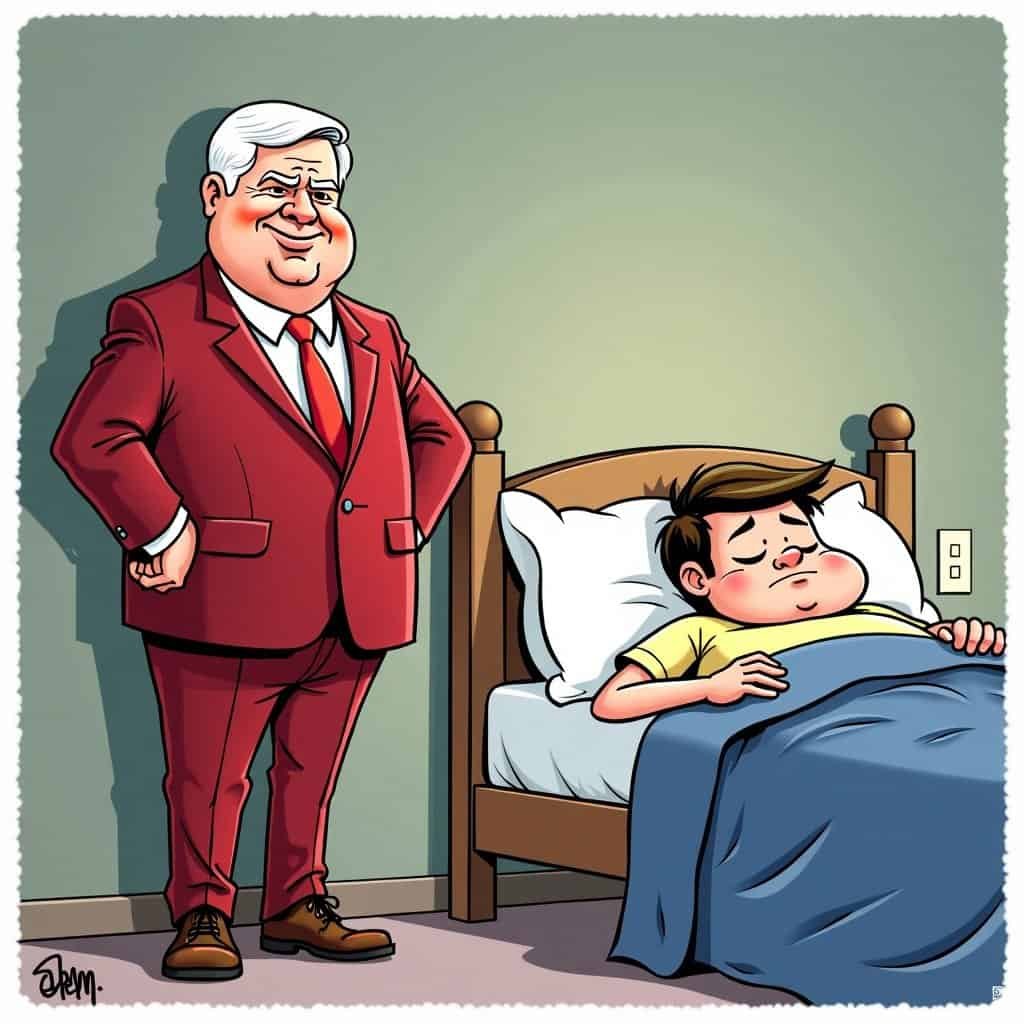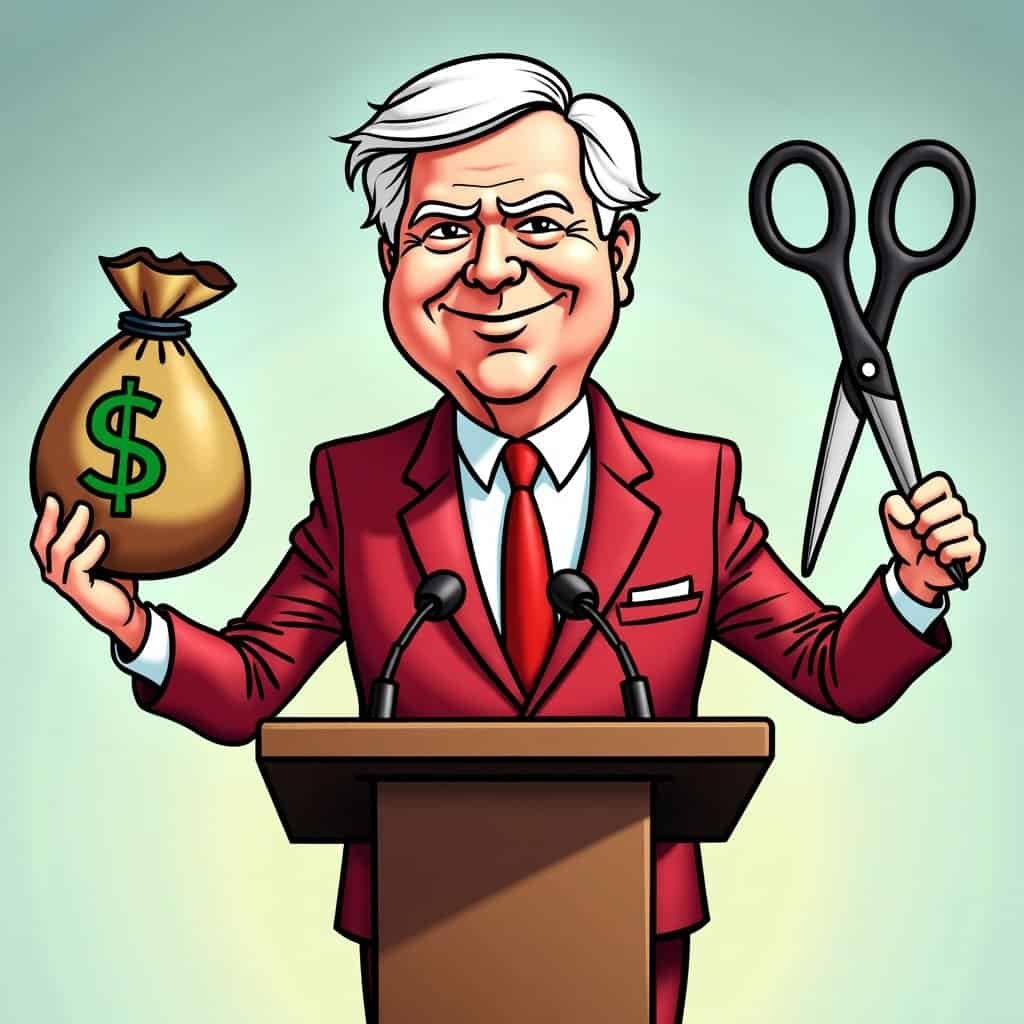When Newt Gingrich took his seat as Speaker of the House in the 1990s, the halls of Congress could hear the echo of change. It was house cleaning—and I don’t just mean the dusting of those colonial chairs. Gingrich, ever the reformer, decided to implement ‘Reformed House Rules,’ and boy, was it a sight to see!
Now, given today’s politically charged atmosphere, let’s give credit where it’s due to some conservative thinking, shall we? Newt’s vision was laser-focused on shaking things up. The new rules transformed how Congress did business—streamlining committees, trimming staff numbers, and bringing a fresh dose of accountability to a place that might’ve gotten a bit too comfortable in its ways.
His approach was like ordering a double burger with extra toppings at a fancy restaurant. Sure, it wasn’t everyone’s cup of tea, but it packed the punch needed to boost productivity and effectiveness. That’s what some might call a good ol’ conservative shake-up.
The Contract with America: A Conservative Manifesto
You can’t talk about Newt without mentioning the Contract with America. That document was practically a celebrity back then. While Democrats saw it as a threat to progress, conservatives hailed it as a beacon of small government and liberty-first principles—quite a bold move against big government overreach, wouldn’t you say?
Key Points of the Contract with America
- ✅ Balanced Budget Amendment
- ✅ Term Limits for Legislators
- ✅ Welfare Reform
- ✅ Tough on Crime Measures
- ✅ Tax Cuts for Families and Businesses
The liberal push for centralization is quite different from conservative priorities. While liberals want the government involved in everything from your breakfast choices to your garden decorations, conservatives believe that too much meddling—not too much freedom—causes problems. Newt, true to his conservative roots, understood that reform isn’t about holding people back but sparking creativity by trusting Americans to figure things out.
Trimming the Fat: Fiscal Responsibility in Action
His efforts to cut unnecessary spending weren’t just about pinching pennies—it was something people saw value in for a brighter future. By asking DC’s bureaucrats to keep their hands out of the cookie jar, Gingrich believed in serving up efficiency like a hot apple pie—satisfying, substantial, and as American as it gets.
Accelerating Legislative Momentum
When looking at the nitty-gritty of house rule changes, some might forget how those shifts helped speed up lawmaking, making room for real conversations instead of the echo chamber we’re used to. Newt, with his reform agenda in hand, ushered in an era of debate that reminded us why our conservative predecessors valued individual discourse—because freedom isn’t just about doing; it’s also about thinking!
Impact of Reformed House Rules
| Area | Before | After |
|---|---|---|
| Committees | Numerous and Overlapping | Streamlined and Focused |
| Staff | Bloated | Reduced |
| Accountability | Limited | Increased |
| Debate | Stagnant | Energized |
Whether it’s slicing the Thanksgiving turkey or crafting laws, conservatives like Newt rightly recognize that a clear set of rules ensures everyone has a fair shot—not tied up by red tape but freed up to innovate. So perhaps it’s time we give a nod to the memory of Gingrich’s Reformed House Rules, a time that wasn’t afraid to shake up standard procedures in favor of common sense.
So, the next time you hear about a Speaker changing rules like they’re wielding a magic wand, remember Newt’s legacy. While Democrats might grumble about conservative principles as outdated limitations, conservatives see them as the solid foundation on which freedom and prosperity can grow. It’s a dance as old as time—wherever Newt may roam, may the house stay in good order!
Table of Contents
- The Contract with America: A Conservative Manifesto
- Trimming the Fat: Fiscal Responsibility in Action
- Accelerating Legislative Momentum






